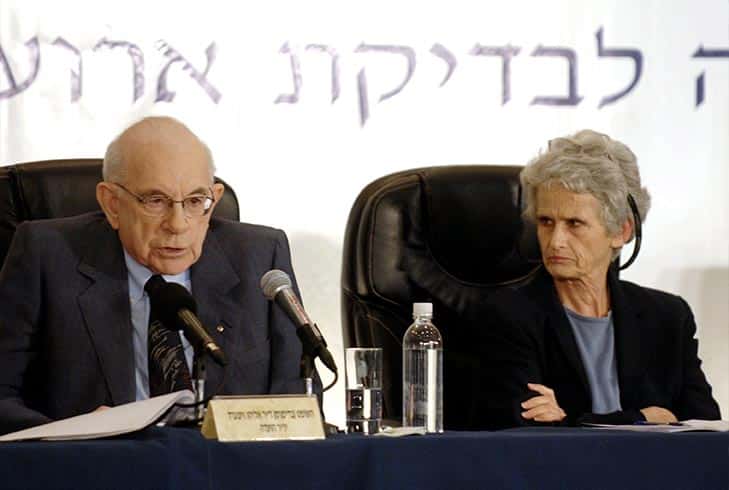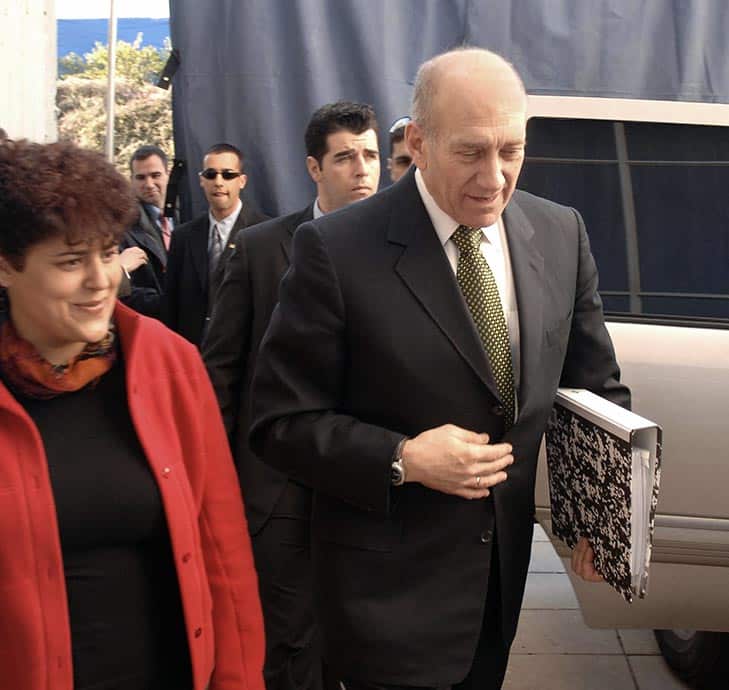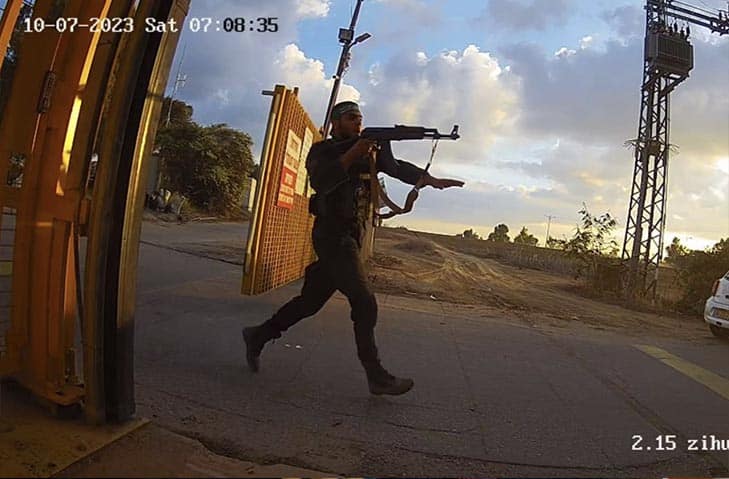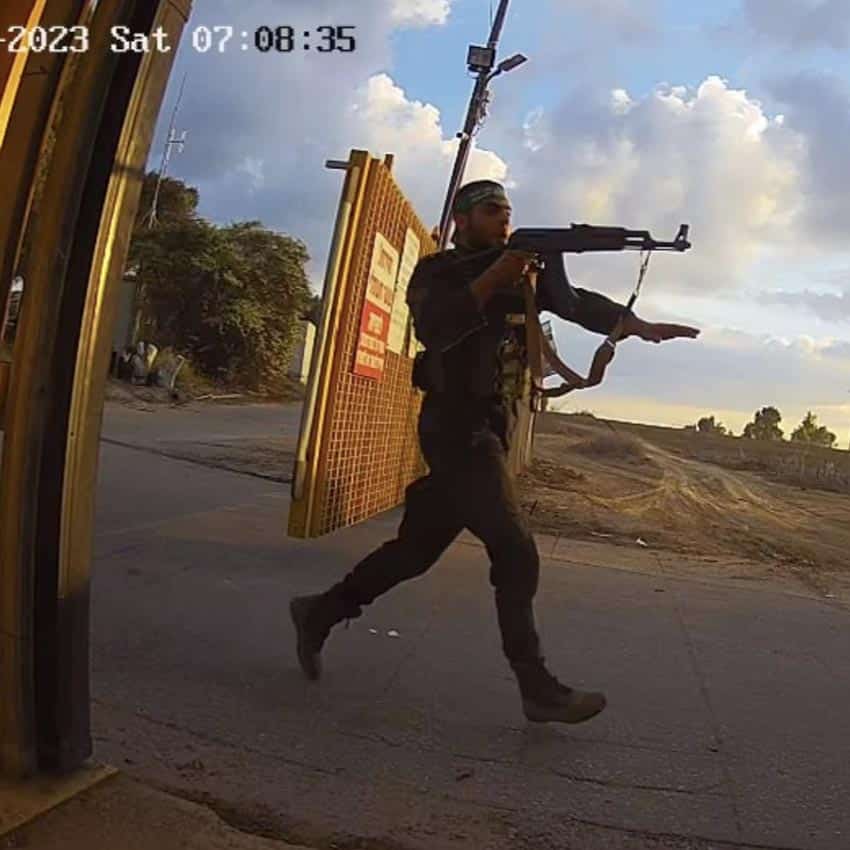With the return of all the living hostages under the deal with Hamas, and as the process of recovering the bodies of the fallen progresses, the time has come to establish a commission of inquiry to examine the failures leading up to the events of October 7, 2023, during the “Black Sabbath” itself, and in the months that followed. This inquiry should not focus solely on military, security, or intelligence failures, but on every level and every domain, including the civilian sphere.
Establishing such a commission is not only an essential step for learning, correcting, and preparing to prevent future catastrophes, but also an integral part of the healing and repair process that the state and society must undergo in the aftermath of this terrible disaster. Alongside the commission itself, it would be appropriate to establish a mechanism for long-term monitoring, oversight, implementation of lessons learned, and correction of deficiencies — with the understanding that its work should continue for years to prevent another such failure.
The key to the success of such a commission lies in its creation and operation based on national considerations — to use this opportunity to strengthen unity and the Israeli spirit — while setting aside narrow political calculations, ego, and power struggles. Yes, that may sound naïve, but only in this way can we truly heal and repair all that must be mended after the past two years. In this context, decision-makers would do well to recall — and learn from — what happened after the Yom Kippur War, and how Prime Minister Golda Meir’s government was eventually forced to establish a commission of inquiry under public pressure, despite its initial resistance.
October 7 was not another “security-intelligence failure” or “operational mishap,” but a systemic earthquake that exposed deep gaps, dysfunctions, and failures across every system — from intelligence and operational capabilities, to organizational culture, threat perception, and the conduct of both the political and security leadership, all the way to the failures of most government ministries and state institutions in responding to the events and their aftermath. This failure persisted in many fields long after October 7, and in some areas — such as public diplomacy and information — continues to this day.
In the government discussion on establishing a state commission of inquiry held on August 10, 2025, it was decided that “the time has not yet come.” The government resolved that it would “act promptly, in coordination with the Knesset, to draft legislation for the establishment of a special state commission of inquiry to investigate the events of October 7, 2023, and the circumstances leading up to them, at a date to be determined, and whose members’ composition would reflect a range of public viewpoints, thereby ensuring broad public trust.”
It was also agreed that the government would submit an update to the High Court of Justice within 90 days. However, the clock has been ticking ever since, and the deadline for submitting the proposal is fast approaching. Meanwhile, on October 15, following a petition by the Movement for Quality Government, the High Court ordered the government to update within 30 days regarding the establishment of a state commission of inquiry “with broad investigative powers” into the events of the October 7 massacre. During the hearing, the government’s representative stated that no state commission would be established “as long as the war continues.”
In my view, the initiative to establish a commission of inquiry must be led by the Prime Minister and the government themselves; otherwise, we will once again find ourselves in the same process that led to the Agranat Commission after the Yom Kippur War — a process driven by public pressure. Even now, the past two years have seen the rift between sectors of Israeli society grow dangerously deep — amid public unrest and protest demonstrations, even during wartime, including calls to end the war.
And yet, it seems that instead of initiating a consensual process to establish a broadly legitimate commission, the leadership is focusing on forming a toothless, limited-body commission — one stripped of the element of “personal responsibility.” But really, who is responsible for this failure — aliens? My dear late grandmother? Or Golda Meir?
The Civilian Committee: Findings and Warnings
In the context of public pressure and internal divisions within Israeli society, it is essential to recall the establishment of the Civilian Commission of Inquiry into the Events of October 7, which operated throughout 2024 as a form of protest against the government’s refusal to establish an official state commission. This civilian committee set out to investigate the events leading up to the “Black Sabbath,” which laid the groundwork for the most significant security failure in Israel’s history.
“The committee will investigate failures within the military and political systems as necessary, without any time limitation,” its members wrote, “and will operate under a broad public mandate to investigate, examine, and publish its findings independently, transparently, and without external influence — until a state commission of inquiry is established.”
Retired Judge Varda Alshech chaired the committee, and its members included Maj. Gen. (res..) and former Knesset member Eyal Ben Reuven, former Police Commissioner Shlomo Aharonishki, Brig. Gen. (res.) Yehudit Grisaru, and former Beit She’an Mayor Rafi Ben-Shitrit, who lost his son, Staff Sergeant Elroi Ben-Shitrit, in the battles of October 7.
The committee began its work as an independent body in July 2024, collecting testimonies primarily from opposition figures and former senior officials in the security establishment. In its full report, published in December of that year, it detailed the failures that, according to its members, led to the day of disaster, the conduct during the initial hours of the war, and the continuing failures that persisted in the months that followed.
“The central question before the state commission of inquiry will be: ‘If there were warnings — why was no action taken?’” the committee wrote. “According to our conclusions, strategic decisions on national security matters were made without oversight, without a genuine and full discussion framework, and without the capacity to build the broad and complete picture required.”
The committee assigned personal responsibility to individuals in the political and military systems who had served in senior positions over the past decade — foremost among them Prime Minister Benjamin Netanyahu, former Defense Minister Yoav Gallant, IDF Chief of Staff Herzi Halevi, and Head of Military Intelligence Aharon Haliva.
A central conclusion in the report was that arrogance on the part of the political and security leadership was a primary cause of failure. Alongside that, the committee issued a warning:
“In the course of our hearings, we did not identify any significant processes now underway that would provide a safeguard against the formation of another dangerous ‘concept.’ Quite the opposite: we found that the very same factors that once prevented deep strategic thinking about potential security developments remain fully active even today.”
The call for a state commission of inquiry has not come only from the opposition benches. About a year ago, Interior Minister Moshe Arbel sent a formal letter of complaint to the Attorney General concerning the civilian committee, in which he expressed his own position on the need for an official state commission. The minister argued that the public testimonies collected by the civilian committee from professionals and other key figures could endanger classified information, warning the Attorney General that:
“There is a serious concern that the committee is collecting testimony protected by confidentiality, thereby committing security and judicial obstruction offenses… In my personal opinion, a state commission of inquiry should be established — and urgently. However, the delay in its establishment cannot justify ignoring suspicions of criminal activity in the civilian committee’s proceedings.”

Investigating, Learning — But Failing to Implement
Three state commissions of inquiry have previously been established in Israel following wars. Their influence on changes within the IDF and on the military-political system was considerable, including their impact on Israeli political life and national security doctrine. However, it was often limited in duration.
The first commission was formed after the Yom Kippur War (1973), following demands — primarily from reservists returning home after the ceasefire with Egypt — to investigate the failures that had led to the surprise attacks along Israel’s borders. Prime Minister Golda Meir initially opposed such a move but was eventually compelled to establish the commission, mainly due to intense public pressure and protests, including from bereaved families.
As part of efforts to push the government in the desired direction, proposals were submitted to the Knesset to establish a commission. Meanwhile, prominent journalists attacked the government for “escaping responsibility,” and regular protest demonstrations were held outside Meir’s home.
Eventually, in November 1973, the Agranat Commission, chaired by Supreme Court President Shimon Agranat, was established. Its principal contribution was the exposure of the so-called “concept” — the flawed strategic assumption that Egypt and Syria would not attack. However, soon after the release of its first report (initially classified, later gradually published over decades), it was criticized for focusing only on the military echelon while “clearing” the political leadership of blame.
Further criticism was directed at the commission’s decision to limit its investigation to events up to October 8, 1973, rather than to the war’s end on October 24, as well as for its lenient stance on the ministerial responsibility of the political echelon — particularly Defense Minister Moshe Dayan, about whom it stated: “As long as he accepts the advice of his counselors, he bears no personal responsibility.” This sparked public outrage.
About ten years later, the Kahan Commission was established to investigate the Sabra and Shatila massacres during the First Lebanon War. After the Yom Kippur War, the demand for a commission came primarily from the public, following the massacre by Christian Phalangists in the Palestinian refugee camp on the outskirts of Beirut, and allegations that the IDF and the Israeli government had looked the other way. The commission, chaired by Justice Yitzhak Kahan, determined that Israel bore indirect responsibility for the events and assigned personal responsibility to senior military and political officials — foremost among them Defense Minister Ariel Sharon, who was forced to resign. Its conclusions emphasized the duty of political oversight over military operations, but many of its organizational recommendations were never implemented.
In September 2006, following the Second Lebanon War, the Winograd Commission was established to examine the performance of the political and military leadership during the war. It found serious deficiencies in decision-making processes, coordination between the government and the IDF, and the preparedness of both the frontlines and the home front. The commission held Prime Minister Ehud Olmert, Defense Minister Amir Peretz, and IDF Chief of Staff Dan Halutz collectively responsible for the failures but did not recommend personal sanctions. It proposed a series of structural reforms in the military and government — many of which were only partially implemented — and emphasized the need for transparency, internal criticism, and stronger links between the political and military echelons during emergencies.
Despite the enormous effort invested by the members of these commissions, most of their lessons, as noted, were never fully implemented. The culture of “smoothing over conclusions” and the absence of a mechanism for implementation and oversight led to their reports, over time, becoming historical documents rather than tools for ongoing correction. This phenomenon must come to an end with the establishment of a state commission of inquiry into the events of October 7.

Independence from the Political Echelon and State Authority
In light of opposition within the government and large parts of the public—particularly within the right-wing camp—to Supreme Court involvement in the work of a state commission of inquiry, a hybrid model could be considered: a public–state commission of inquiry, established either by government decision or by the President of the State. Such a body would include retired judges, former security officials, researchers, and public figures. Its guiding principle must be complete independence from political influence, combined with state investigative authority.
The commission would be tasked with investigating two main spheres:
The first events leading up to October 7, including political and security decision-making processes, organizational culture within the IDF and the intelligence community, and the long-standing policy of “containment” toward Hamas.
The second — the response following the outbreak of war: the performance of the military and security apparatus in confronting battlefield and home-front challenges; the conduct of state agencies during the emergency; treatment of the hostages and their families; cabinet operations; civil-military relations; public diplomacy and information efforts; international engagement; and more.
A senior retired judge should chair the commission to ensure independence and adherence to due process. Alongside the chairperson would sit representatives of the legal system—including figures from the public legal service, former legal advisers, and experts in international law and human rights; representatives of the security and intelligence establishments—retired officers from the IDF, Military Intelligence, Shin Bet, and Mossad, to ensure complete professional understanding of security structures; public and academic figures—researchers, defense policy experts, journalists, and social leaders with public integrity, to provide a broad perspective; and representatives of the victims and families of the hostages.
The commission’s powers would include full investigation of the political echelon, the military command, the intelligence community, government ministries, and relevant public institutions; access to all defense establishment documents, government decisions, and internal communications; the authority to summon witnesses from all levels, including former prime ministers, defense ministers, and senior military officials; and the right to publish reports detailing failures, lessons, conclusions (including personal accountability), and practical recommendations.
An example of a balanced model that could guide such a commission is the U.S. 9/11 Commission, an independent public body established under congressional authority that investigated the entire security and intelligence apparatus and whose recommendations were codified into law. One of its key insights was the need for a permanent monitoring body to oversee the implementation of its recommendations, rather than a one-time report. This idea led to the creation of the National Counterterrorism Center (NCTC), a permanent interagency body that continued the work of the commission.
A similar model is required in Israel: not only a commission of inquiry, but also a permanent authority for implementing and monitoring lessons learned, which would report to the public annually and evaluate how its conclusions impact the structure of the intelligence community, decision-making processes, and national security policy.
Such an authority would include:
- A permanent inter-ministerial unit to monitor implementation, reporting annually to the government and the Knesset;
- A public and academic interface — publication of open reports and monitoring of implementation, allowing for public scrutiny;
- Policy and security updates — integrating practical lessons into the training of military and intelligence officers, updating procedures and national security policy accordingly;
Oversight of future agreements, including legal guidelines for prisoner releases, is inspired by the work of former Supreme Court presidents.
Legal Authority Coupled with National Vision
Contrary to what many claim, establishing a commission of inquiry is not a political maneuver—it is an act of restoring national trust. It is a democratic duty owed by the state to its citizens. If a state commission is not established, academia, the media, and civil society must lead the creation of an independent public commission, gathering testimony and laying the groundwork for historical and security reflection.
Israeli democracy cannot afford to leave October 7 outside its process of national reckoning. As the late former Supreme Court President Justice Meir Shamgar warned: “A commission of inquiry is one of the central tools a democratic society possesses to protect itself from itself.”
It remains to be seen which path the government will take. Still, it can already be said: whatever commission is established—state or public—it must be a commission of wisdom and responsibility, not vengeance. It must combine retrospective investigation with forward-looking implementation and oversight, ensuring that nothing is forgotten—not after 20 years, not after 50.
It must be grounded in legal authority yet guided by national vision. Only in this way can we ensure that Israel does not repeat its classic mistake: to investigate, to conclude, and to forget. Only in this way can we ensure that we not only learn but also implement, internalize, and embed—for the long term—the lessons of October 7, so that the mistakes of the past are never repeated.








